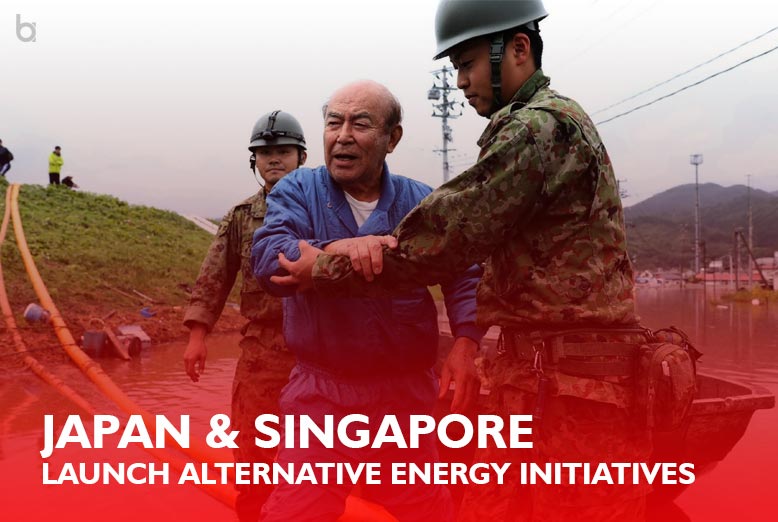Key Highlights:
- Japan issued a military whitepaper that referenced climate change for the first time.
- Japan’s Self-Defense Forces are already boosting their usage of renewable energy.
- The Republic of Singapore Air Force, for its part, has constructed a “net-positive energy” hangar at Changi East Air Base.
New Energy Paradigm
The military of several Asian countries are preparing for a new energy paradigm in the face of a perfect storm of security concerns, climate change, and the rise of renewable resource choices, all of which are pushing operational changes.
East Asian economic powerhouses, such as Japan and South Korea, have long recognized the fragility of their energy supply and how critical it is to their economy, which relies largely on oil goods sent by sea from the Middle East through a number of maritime chokepoints.
Given the complicated national security responsibilities of deterring Chinese aggression, preparing for the unpredictable nature of a nuclear-armed North Korea, and managing humanitarian disasters, the need for alternative energy security is increasingly important for their military. As alternative energy sources become more viable, these countries and their armies are redoubling their efforts to transition to them.
Boosting Renewable Resources
On July 13, Japan issued a military whitepaper that referenced climate change for the first time. The study stated that climate change will have a direct influence on armies throughout the world by increasing the requirement for personnel to be deployed for rescue missions and endangering the safety of equipment and bases.
The whitepaper warned that shortages of water, food, and land caused by climate change — disappearing sea ice, rising sea levels, and extreme heatwaves — may spark and intensify resource conflicts. Furthermore, the government warned that increasingly frequent extreme weather occurrences might lead to large-scale disasters and an increase in the spread of contagious illnesses.
It advised nations all over the world to brace themselves for a rise in disaster relief and medical support missions, as well as humanitarian and rebuilding aid efforts. However, the Japan Self-Defense Forces are already boosting their usage of renewable energy, with a current push to increase the use of solar power at bases.
Singapore’s Endeavor
Singapore’s military is participating in this endeavor and has implemented a variety of initiatives to minimize its reliance on fossil fuels and carbon emissions. These include progressively replacing the Defense Ministry’s 400 administrative cars with hybrid — and eventually electric — vehicles.
The Republic of Singapore Air Force, for its part, has constructed a “net-positive energy” hangar at Changi East Air Base for its Airbus A330 Multi-Role Tanker Transport aircraft, which means the facility can create more energy than it uses.
Singapore’s Army has also installed net-zero energy buildings at some of its camps, and it is installing solar panels at others. The Republic of Singapore Navy is also investigating the use of hybrid propulsion for future ships, which would result in increased energy efficiency and a lower carbon impact.
Also Read : What does the Digital Trade Agreement between Singapore and Vietnam uphold?




















